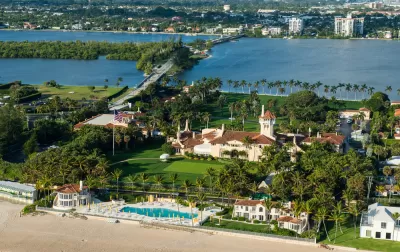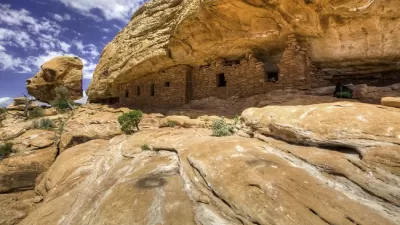After announcing the coast of almost all states would be open for oil and gas production, the Secretary of the Interior changed his mind on one after meeting with Trump’s favored candidate for Senate.

Reviewing a year of the Department of the Interior under Ryan Zinke, Elizabeth Kolbert notes that he is, "in many ways, a typical Trump appointee" in that "[n]early all Trump’s Cabinet members have shown disdain for the regulatory processes they’re charged with supervising."
Since he first rode into town and raised his flag over the agency, Zinke has reopened federal land for coal leases, recommended shrinking Bears Ears National Monument, expressed interest in making it easier to drill for oil and gas on public land, and rolled back regulation on methane.
Earlier this month, despite bipartisan opposition from both politicians and voters, Zinke announced he would open almost all of the coastal areas in the United States to offshore drilling.
Several days later, he took part of it back. After a brief meeting with Florida Governor Rick Scott, Zinke removed the state’s coast from consideration.
“The move was manifestly political. In the past, Scott has supported drilling for oil just about everywhere, including in the Everglades, but, with Trump’s encouragement, he is now expected to challenge Florida’s senior senator, Bill Nelson, a Democrat, in November.”
Even more recently, Zinke’s refusal to meet with the National Park Service Advisory Board prompted the resignation of nine of its 12 members.
"In the decades to come," Kolbert writes, "one can hope that many of the Trump Administration’s mistakes—on tax policy, say, or trade—will be rectified. But the destruction of the country’s last unspoiled places is a loss that can never be reversed."
FULL STORY: The Damage Done by Trump’s Department of the Interior

Planetizen Federal Action Tracker
A weekly monitor of how Trump’s orders and actions are impacting planners and planning in America.

San Francisco's School District Spent $105M To Build Affordable Housing for Teachers — And That's Just the Beginning
SFUSD joins a growing list of school districts using their land holdings to address housing affordability challenges faced by their own employees.

The Tiny, Adorable $7,000 Car Turning Japan Onto EVs
The single seat Mibot charges from a regular plug as quickly as an iPad, and is about half the price of an average EV.

Seattle's Plan for Adopting Driverless Cars
Equity, safety, accessibility and affordability are front of mind as the city prepares for robotaxis and other autonomous vehicles.

As Trump Phases Out FEMA, Is It Time to Flee the Floodplains?
With less federal funding available for disaster relief efforts, the need to relocate at-risk communities is more urgent than ever.

With Protected Lanes, 460% More People Commute by Bike
For those needing more ammo, more data proving what we already knew is here.
Urban Design for Planners 1: Software Tools
This six-course series explores essential urban design concepts using open source software and equips planners with the tools they need to participate fully in the urban design process.
Planning for Universal Design
Learn the tools for implementing Universal Design in planning regulations.
Smith Gee Studio
City of Charlotte
City of Camden Redevelopment Agency
City of Astoria
Transportation Research & Education Center (TREC) at Portland State University
US High Speed Rail Association
City of Camden Redevelopment Agency
Municipality of Princeton (NJ)




























